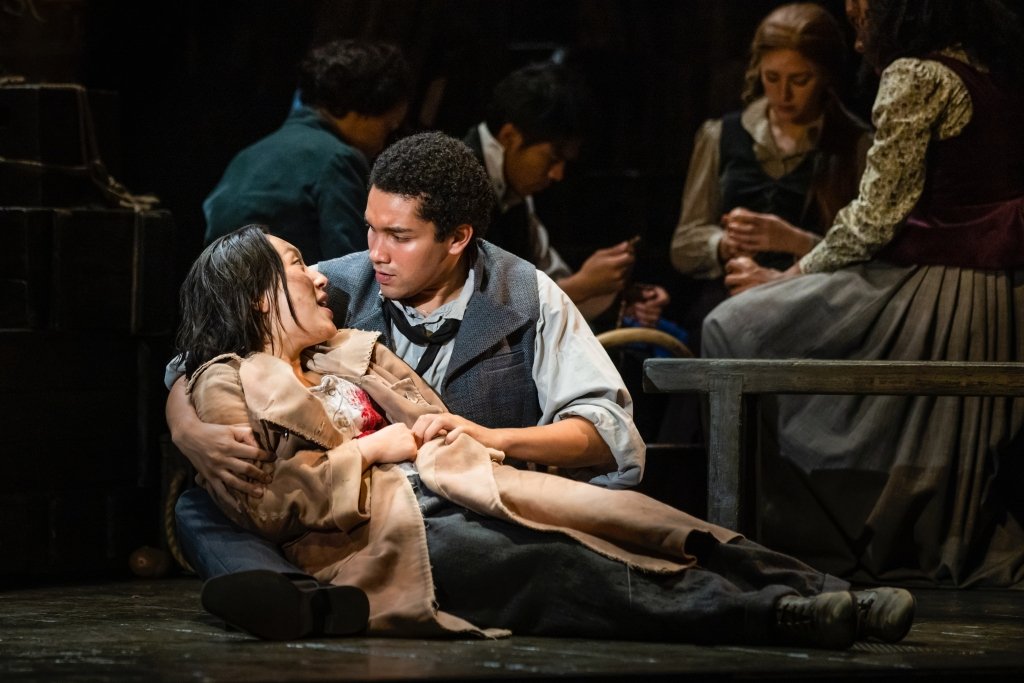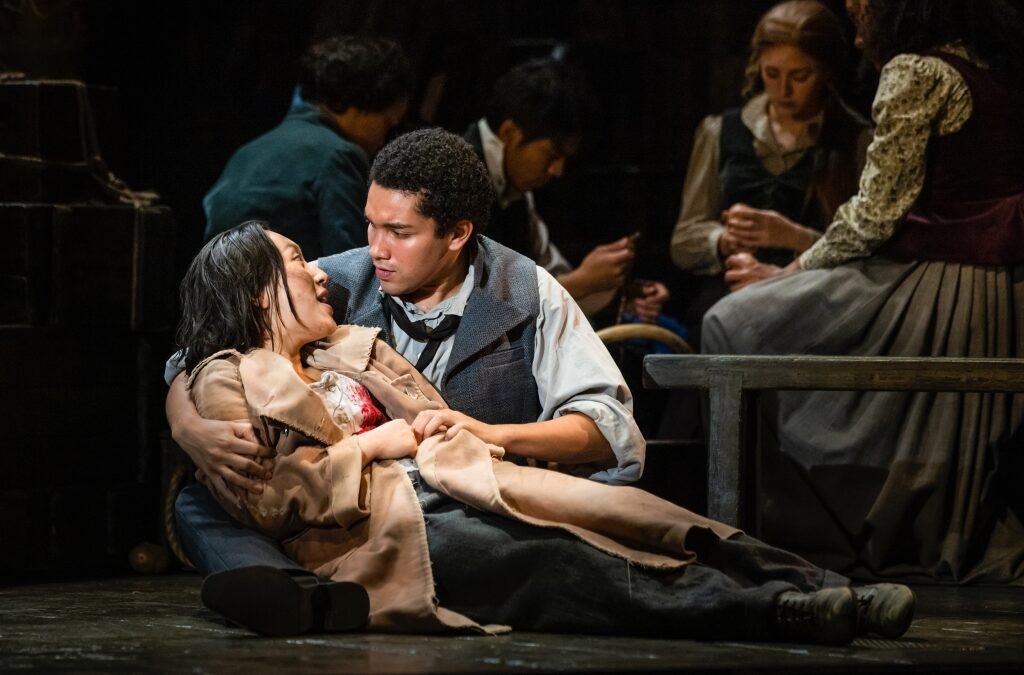By Michael Kinney
At its core, Les Misérables revolves around the themes of redemption, love, and the relentless pursuit of justice. Victor Hugo’s classic novel, upon which the musical is based, serves as a source material that delves into the complexities of morality and societal injustice.
At least that is what it’s supposed to have been about when it was first published in 1862. Yet, more than 150 years later, the themes portrayed in the 19th-century novel are still relevant today.
The OKC Broadway rendition of the timeless masterpiece is interesting, delivering a powerful and poignant experience that seems to resonate with the audience despite many of them having seen it multiple times.
At the helm of this revival is a stellar cast that breathes life into Hugo’s unforgettable characters. Leading the ensemble is Jean Valjean, portrayed with depth and vulnerability by Nick Cartell. His transformation from a hardened ex-convict to a compassionate and noble man is the main focus of the production.
The character of Valjean embodies the transformative power of redemption. From a hardened ex-convict burdened by the weight of his past, Valjean evolves into a compassionate and noble soul driven by the pursuit of doing good after forgiveness had been bestowed upon him by Bishop Myriel, who said he purchased his soul for God and that he should use money from the silver candlesticks he stole to make an honest man of himself.
Valjean’s journey becomes a testament to the inherent capacity for change within every individual, offering a message of hope and resilience as he is being pursued by the ever-vigilant Inspector Javert (Preston Truman Boyd).
Valjean has to make difficult decisions along the way on his path to being an honest man. He isn’t always successful, which makes the story a clearer reflection of the human condition. At the same time, Javert is confronted with choices just as demanding and pivotal.

and Gregory Lee Rodriguez as Marius in Les
Misérables. Photos by: Matthew Murphy & Evan
Zimmerman
Valjean doesn’t become the man he claims he wants to be without an adversary like Javert. Both are needed for the story to work, just like in life.
In fact, you can make the argument that Javert is the real hero. Just a thought.
The revolving love story can be erratic, and confusing and sidetracks the story with so many people professing their love to people who do not feel the same. But in the end, Hugo seems to basically be saying love transcends adversity, inspiring acts of sacrifice and compassion.
Against the backdrop of revolutionary fervor in 19th-century France, the musical explores the tension between the pursuit of justice and the sacrifices demanded by societal upheaval. The barricade scenes symbolize the struggle for a better world, where ordinary individuals rise to challenge oppressive systems. The anthem “Do You Hear the People Sing?” becomes a rallying cry for change, capturing the spirit of collective resistance against injustice.
But it is “One Day More” which sets the tone for the upcoming revolution that will have patrons singing in the car ride back home. Or at least it did me.
Les Misérables, while rooted in a specific historical context, resonates across time and cultures due to its universal themes. It prompts reflection on the nature of humanity, the transformative power of love and redemption, and the enduring quest for justice.
Through its poignant storytelling and powerful musical score, Les Misérables continues to captivate audiences, inviting them to ponder the timeless questions of morality, compassion, and the indomitable human spirit.
It’s a story that worked in the 1860s and should be paid attention to in 2024.
Les Miserables will be showing Jan. 16-21 at the Civic Center Music Hall in Oklahoma City.
IG: mkinneymedia
X (Twitter): MKinneyMedia
Youtube: Michael Kinney Media
Photos (SmugMug): Michael Kinney

